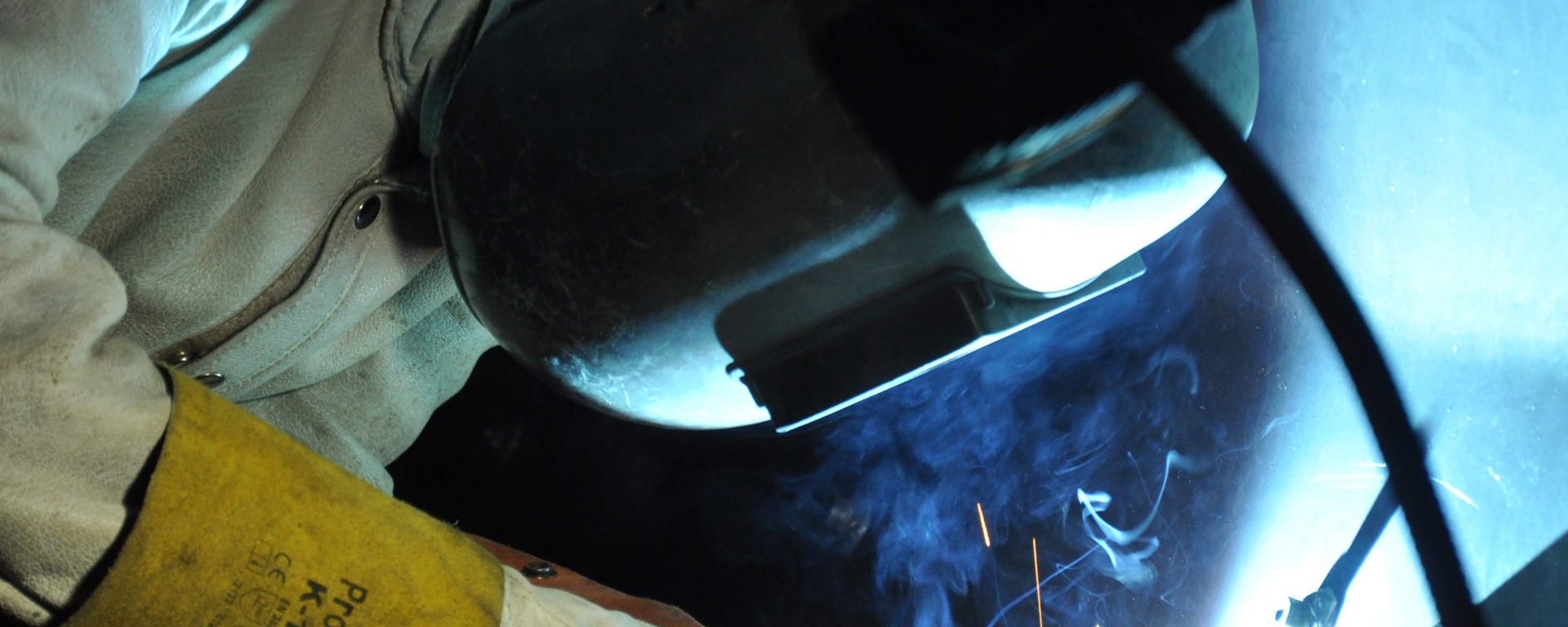If you are looking for an exciting, hands-on career in the manufacturing field, you may be considering the role of welder. Welding is a profession that has been around for hundreds of centuries, and it’s not slowing down any time soon. In fact, the U.S. Bureau of Labor Statistics expects this position to grow 3% by the year 2029, adding over 13,500 jobs to the field.
Don’t let our high-tech, automation-driven world fool you. A career in welding is one that offers variety, success, and a lifetime of possibilities. As long as we continue to build products and roadways in this country, we will need skilled, trained welders in our workforce.
If you’re considering pursuing a career in welding, you may already know the skills needed to succeed. But what about the training involved? What can you expect by attending welding school? Read on, as we dive into the ins and outs of welder training, and what it takes to land the role of your manufacturing dreams.
Is welding training required?
Many welding employers today only require a high school diploma, combined with on-the-job training. But a postsecondary welding program at career-focused school, such as Goodwin University, can prepare you for your career, set you up for success, and set you apart from the competition.
In fact, Connecticut manufacturers prefer to hire candidates with some college experience. According to a recent survey, employers have higher satisfaction with workers who have attained education beyond high school. More than 75 percent of CT manufacturers report Connecticut’s universities and private colleges have brought them highly qualified job candidates.
What will you learn in a welder training program?
With a hands-on welding program, you will emerge with the following skills:
- Organization
- Communication
- Teamwork
- Time Management
- Mathematic
- Technical skills, such as:
- Cutting and trimming metal parts to precise dimensions
- Detecting changes in molten metal flows
- Following instructions
- Inspecting parts and materials
- Maintaining a clean and safe workspace
- Operating a brazing torch
- Operating robotic welding machines
- Setting up fixtures and machine tools
- Using fillet and butt weld gauges
- Using hand tools
- Using a soldering iron
- Physical skills, such as:
- Close vision and depth perception
- Hand-eye coordination
- Manual dexterity
- Stamina
- Strength
What else will you gain in welding training?
In addition to the many skills you will acquire through a welder training program, you will also walk away from your program certified and ready to take on a career as a professional welder. The welding certificate program at Goodwin prepares students to pursue certification or entry-level employment in the field. There are also many other, voluntary welding certifications to choose from, which can help you further your career goals.
Hands-on Welder Training in Connecticut
Goodwin’s certificate program in Welding Technology offers the technical training and hands-on experience that employers today want to see in their new hires.
Just 24-credits, our training program covers everything future welders need to know – from welding safety and fabrication, to common welding methods like:
- Shielded metal arc welding
- Gas metal arc welding
- Flux core arc welding
- Thermal cutting
- And more
Goodwin uses state-of-the-art machinery to teach students how to create and weld complex parts using a CNC plasma table. Students can put their skills to the test using a virtual reality machine. They also have the opportunity to learn precise pipe alignment with an innovative Bluco table.
The welding certificate program at Goodwin can be completed in as little as eight months. So you can get your training in and get started in your field within a year’s time.
Well-qualified, skilled welders can be hard to come by. With a certificate in hand, you can launch your own welding career and, if you choose, move on to pursue the other certifications needed for higher positions that offer better pay. Some of these roles include:
- Certified Welding Educator
- Certified Welding Supervisor
- Certified Welding Sales Representative
- Certified Welding Engineer
- Certified Welding Inspector
There is a bright future for those who choose to pursue a welder training certification program. If you would like to learn more about the welding program at Goodwin University, call 800-889-3282 or visit us online to request more information
Goodwin University is a nonprofit institution of higher education and is accredited by the New England Commission of Higher Education (NECHE), formerly known as the New England Association of Schools and Colleges (NEASC). Goodwin University was founded in 1999, with the goal of serving a diverse student population with career-focused degree programs that lead to strong employment outcomes.

